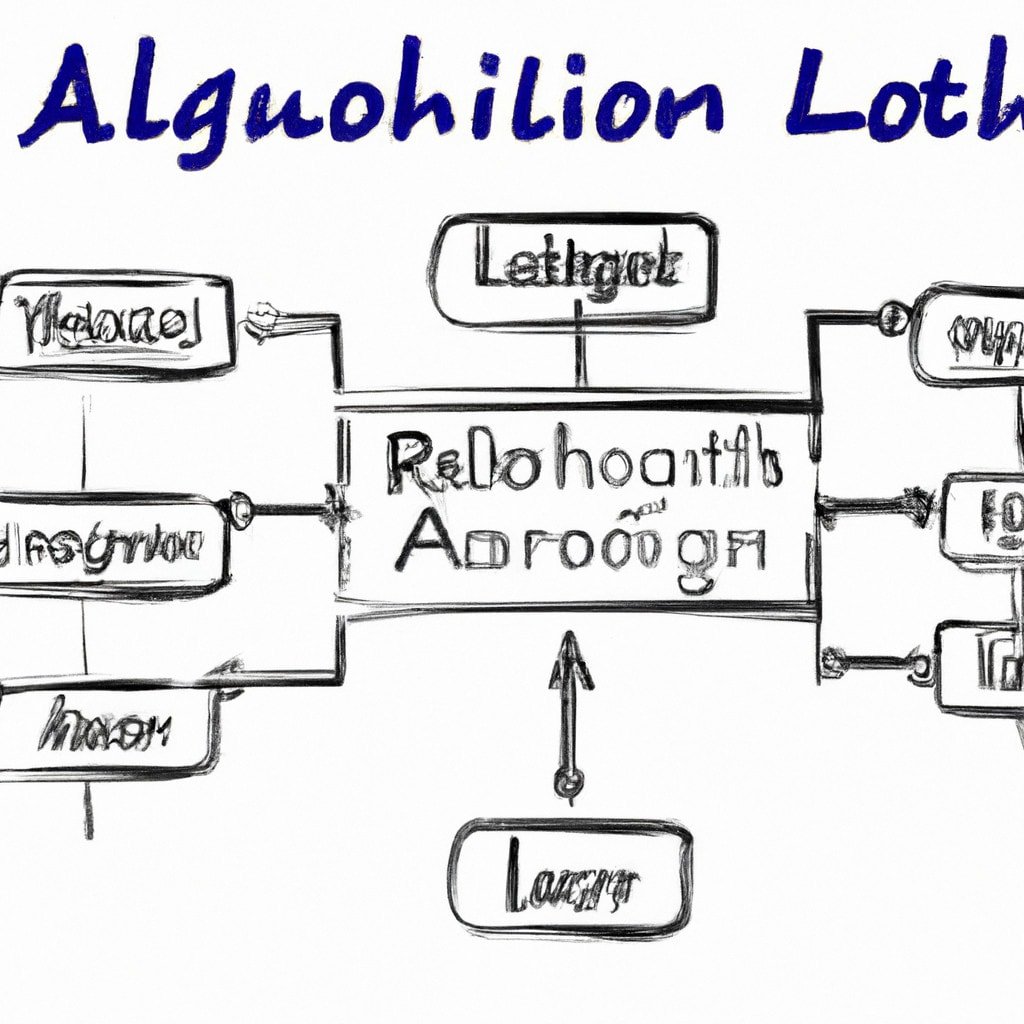Welcome to my blog! In today’s article, we’ll explore the fascinating world of algorithmic game theory and its various applications. Don’t miss this exclusive insight into where this cutting-edge field is used!
Exploring the Realms of Algorithmic Game Theory: Applications and Use Cases
Algorithmic Game Theory is a field that combines principles from computer science, economics, and optimization to study strategic interactions between multiple decision-makers in various settings. The main goal of this discipline is to provide insights into the mechanisms behind efficient decision-making, thereby facilitating the development of robust and scalable algorithms.
In the context of algorithms, Exploring the Realms of Algorithmic Game Theory: Applications and Use Cases entails investigating a diverse range of practical scenarios where these algorithms can be implemented, contributing to improvements in different aspects of our lives, such as the economy, resource management, and social welfare.
One significant application of Algorithmic Game Theory is in mechanism design. This area focuses on developing systems that incentivize participants to behave in a particular way, often with the aim of achieving a desired outcome. Examples include auctions, voting systems, and marketplaces, where carefully designed rules can ensure fairness and efficiency.
Another relevant field where algorithmic game theory comes into play is congestion control in communication networks. In this context, algorithms are employed to allocate and optimize resources among users, leading to enhanced network performance and stability. By modeling user behavior as strategic agents, it becomes possible to find equilibrium points that maximize overall throughput and minimize delays.
The study of online algorithms and competitive analysis also plays an essential role in the realms of algorithmic game theory. These concepts focus on making real-time decisions under uncertainty, which has applications in various aspects of technology, including web caching, online advertisement auctions, and cloud resource allocation.
Furthermore, the exploration of social and economic networks forms an integral part of algorithmic game theory. Understanding the behavior and dynamics of complex systems like financial markets, supply chains, and social networks can lead to the development of robust algorithms for vital tasks, such as fraud detection, recommendation systems, and risk management.
In conclusion, the subject of Exploring the Realms of Algorithmic Game Theory: Applications and Use Cases delves into the myriad potential applications for algorithms related to strategic decision-making. The knowledge and insights gained from these investigations contribute significantly to improving the way we interact with technology and our environment.
Algorithms Explained for Beginners – How I Wish I Was Taught
Social Media Is Changing For Good & Nobody Notices It
In what real-life situations is game theory utilized?
In real-life situations, game theory is utilized in various fields to analyze and understand decision-making processes. In the context of algorithms, game theory plays a significant role in multiple areas, including:
1. Economics: Game theory is extensively applied in economics to study market competition, auctions, bargaining, and regulation. It helps economists predict the actions of competitors and create pricing strategies.
2. Politics: By analyzing political strategies, voting behavior, and alliance formation, game theory aids in understanding the dynamics of political power and decision-making.
3. Social Sciences: In sociology and psychology, game theory is used to model human behavior and interactions, such as cooperation, trust, and altruism in communities.
4. Biology: Game theory is employed to analyze behavioral patterns and strategies among animals, plants, and microorganisms concerning natural selection and evolution.
5. Computer Science: Algorithmic game theory combines classical game theory with computational complexity and algorithm design. Applications include multi-agent systems, network routing, and machine learning.
6. Cybersecurity: Analyzing the decisions and strategies of attackers and defenders in a network allows for better protection and countermeasures using game theory principles.
7. Conflict Resolution: In international relations and negotiations, game theory is used to model strategic interactions between countries and facilitate agreement and conflict resolution.
8. Resource Allocation: Game theory helps in devising optimal allocation strategies in various settings, such as urban planning, energy distribution, and transportation networks.
Overall, game theory’s impact on algorithms and real-life situations is widespread, providing essential insights into complex decision-making processes across numerous disciplines.
How is game theory applied in real-world decision-making scenarios?
Game theory is widely applied in real-world decision-making scenarios, especially when optimizing decisions in complex and competitive environments. In the context of algorithms, game theory plays a pivotal role in understanding strategic interactions between multiple agents or decision-makers. Some key applications include:
1. Economics and Business: Game theory is crucial in analyzing market competition, strategy formulation, pricing, auction design, and negotiation techniques. Companies use algorithms based on game theory to optimize their strategies and maximize their profits while considering the actions of their competitors.
2. Politics: Political analysts apply game theoretic models to study voting systems, power dynamics, coalition formation, and international relations. These models can help predict the behavior of political parties and countries in response to various policies and global events.
3. Biology and Ecology: Game theory has been used in understanding animal behavior, evolution, and natural selection. Many biological processes are modeled using game theoretic concepts, leading to insights into animal interactions, predator-prey relationships, and cooperation within species.
4. Computer Science: In computer networks and distributed systems, game theory aids in designing efficient algorithms for resource allocation, congestion control, and security. Multi-agent systems often use game theoretic techniques to enable cooperative and competitive behavior among software agents.
5. Social Network Analysis: Game theory helps model and analyze the formation and evolution of social networks, with applications in marketing, online communities, and influencing public opinion. Algorithmic approaches based on game theory can shed light on how individuals interact within a network, and how their decisions affect its structure and dynamics.
Overall, game theory proves to be a powerful tool in various real-world decision-making scenarios. Algorithms incorporating game theoretic concepts can provide more effective and rational solutions to diverse problems, offering valuable insights into the complexities of human behavior and strategic decision-making.
In what real-world applications is algorithmic game theory most commonly utilized to optimize outcomes?
In real-world applications, algorithmic game theory is most commonly utilized to optimize outcomes in various domains, including:
1. Auctions: Algorithmic game theory plays a vital role in designing and analyzing auction mechanisms for allocating goods and resources optimally among bidders. For instance, Google’s AdWords Auction mechanism utilizes algorithmic game theory concepts for effective advertisement placement.
2. Network routing: In large-scale communication networks, algorithmic game theory helps to determine efficient routing strategies for data packets, ensuring a balance between cost and delay, as well as determining optimal policies for service providers.
3. Resource allocation: In cloud computing environments, algorithmic game theory contributes to the optimal allocation of resources, such as processor time and storage space, while minimizing costs and balancing the workload for users.
4. Energy markets: The theory is employed to study competition among power generators and to optimize strategies for bidding in electricity markets. This helps in predicting market behaviors, ensuring a fair distribution of resources, and maintaining stability in power grids.
5. Transportation: In traffic planning and management, algorithmic game theory can be used to predict driver behavior, optimize traffic signal timings, and evaluate pricing strategies for congestion control.
6. Supply chain management: The theory aids in designing efficient supply chain management systems by analyzing the impact of pricing, production, and inventory policies on various participants in the supply chain network.
These are just a few examples of the real-world applications where algorithmic game theory is being utilized to optimize outcomes. The potential of this interdisciplinary field is immense, and it continues to grow as more industries discover its benefits.
How has algorithmic game theory influenced the design and development of algorithms in areas like economics, social networks, and decentralized systems?
Algorithmic game theory has significantly influenced the design and development of algorithms in areas like economics, social networks, and decentralized systems. This impact can be observed in multiple ways:
1. Mechanism Design: In the field of economics, algorithmic game theory has contributed to mechanism design, which aims to create mechanisms or rules for strategic decision-making. This involves the development of algorithms that achieve specific outcomes, such as optimizing resource allocation or maximizing social welfare. The concept of incentive compatibility is central to mechanism design, ensuring that individuals or agents act honestly and follow the guidelines set forth by the mechanism.
2. Computational Social Choice: Algorithmic game theory also plays a substantial role in computational social choice, a subfield of economics that deals with aggregating individual preferences or opinions to produce collective decisions. Algorithms are used to solve complex problems, such as identifying the most preferred alternative or ranking alternatives based on preference profiles. Examples include voting systems, fair division algorithms, and matching markets.
3. Analysis of Social Networks: In the context of social networks, algorithmic game theory provides valuable tools for analyzing different aspects of network behavior, such as influence maximization, community detection, and information diffusion. These analyses help improve recommendation and advertising systems, allowing for more efficient targeting and better user experience.
4. Decentralized Systems and Blockchain: Algorithmic game theory has been instrumental in the design of decentralized systems, particularly in the development of blockchain technology. Cryptocurrencies like Bitcoin rely heavily on game-theoretic concepts, such as the Nash equilibrium and incentive compatibility, to ensure the security and stability of the system. Consensus algorithms like Proof of Work (PoW) and Proof of Stake (PoS) are examples of applying game theory principles to achieve distributed consensus in decentralized networks.
5. Networking and Routing: In computer networks, algorithms inspired by game theory have been employed to address various optimization problems, such as routing, resource allocation, and congestion control. These algorithms help improve the overall efficiency and performance of networks by modeling user behavior and anticipating potential conflicts.
In conclusion, algorithmic game theory has had a profound impact on various fields, including economics, social networks, and decentralized systems. By leveraging this approach, researchers and developers can design more effective and efficient algorithms that address complex strategic decision-making problems in different domains.
Can you provide case studies or examples demonstrating the successful use of algorithmic game theory in the improvement of algorithm efficiency and effectiveness?
In the context of algorithms, algorithmic game theory has been successfully applied in numerous scenarios to improve algorithm efficiency and effectiveness. Here, we discuss two case studies that demonstrate the practical application and impact of this field.
1. Google’s Ad Auctions
One of the most well-known case studies in algorithmic game theory is Google’s use of the generalized second-price auction (GSP) for its advertising platform. The GSP is a modified version of the famous Vickrey-Clarke-Groves (VCG) mechanism, which has desirable properties in terms of truth-telling and economic efficiency.
In Google’s advertising system, multiple advertisers compete for ad slots on a web page based on their bids for specific keywords. Through the GSP algorithm, Google ensures that the advertisers with the highest bids get the best ad slots, while the cost they pay is based on the bid of the next highest bidder. This mechanism incentivizes bidders to reveal their true valuations for the ad slots, leading to an efficient allocation of resources in the ad market.
The success of Google’s ad auction demonstrates how algorithmic game theory can optimize revenue generation and overall system efficiency in real-world applications.
2. Ridesharing Platforms
Another example of successful algorithmic game theory application is in ridesharing platforms such as Uber and Lyft. These companies employ dynamic pricing algorithms, also known as surge pricing, to manage supply and demand during peak times.
Dynamic pricing operates on the principles of algorithmic game theory, where the platform sets prices based on predicted demand levels to encourage drivers to operate in high-demand areas. By adjusting prices in real-time, these companies can maintain a balance between customer needs and driver availability, ensuring that riders can find transportation when they need it most.
This application of algorithmic game theory has been instrumental in improving the efficiency of rideshare services, benefiting both customers and drivers.
In conclusion, the successful examples of Google’s Ad Auctions and ridesharing platforms like Uber and Lyft demonstrate how algorithmic game theory can significantly enhance the efficiency and effectiveness of algorithms in various domains. These case studies showcase the field’s potential for solving complex optimization problems and driving innovation in the real world.




